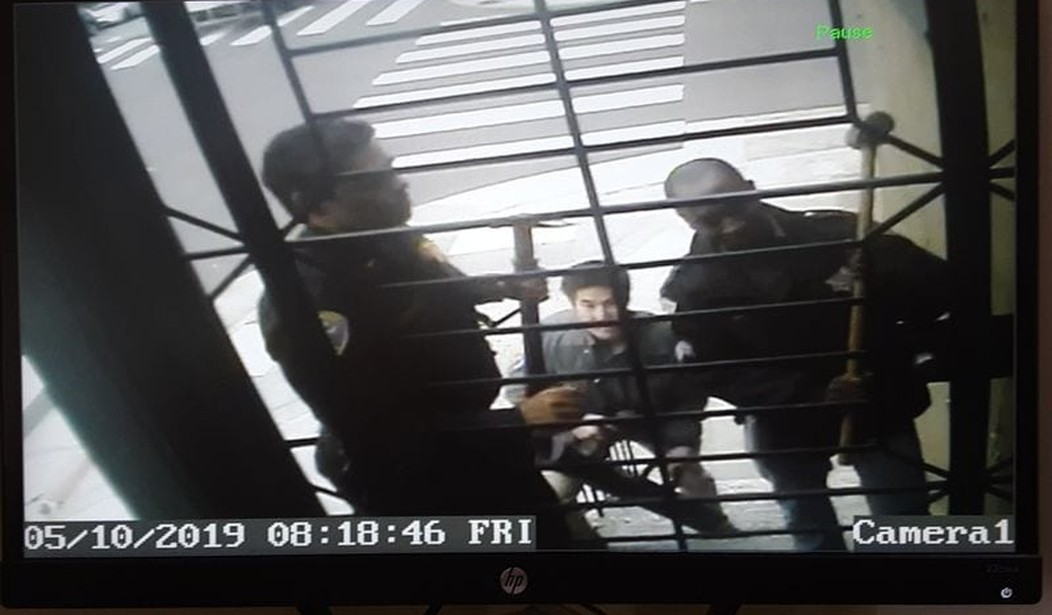San Francisco-based freelance journalist Bryan Carmody “woke to the sound of San Francisco police officers breaking down his security gate with a sledgehammer” on Friday, May 10, then was handcuffed for seven hours while “officers seized his computers, cameras, phones and notebooks,” in both his home and his off-site office and giving no indication of when they might be returned. Though the officers had a warrant, Carmody says he was the target of an intimidation campaign by a police department that wanted him to give up his sources.
Carmody, his attorneys, and multiple First Amendment advocacy groups assert that the warrants and the raid shouldn’t have been authorized under the law. Today, they will be heard in San Francisco Superior Court on motions to unseal the warrant applications, to “quash and revoke” the warrants, and to order the SFPD to return Carmody’s property.
Matt Vespa over at Townhall summarizes the back story:
The late San Francisco Public Defender Jeff Adachi passed away in February while at the apartment of a female companion named “Catalina,” who was not his wife. He had heart issues, and the combination of cocaine and alcohol that were in his system at the time of his death probably didn’t help. Adachi did not have a good relationship with the police department. And freelance reporter Bryan Carmody obtained a police report into Adachi’s death just hours later, which he sold to local media. The report was meant to be confidential. There were allegations that this was a premeditated leak with the goal of damaging Adachi’s character, especially due to his less than stellar relationship with the police department. The police came to Carmody’s door twice. The first time the reporter admitted they were very nice, but he refused their request to reveal his source. The next time they came, it was guns drawn.
Guns drawn, and equipped with sledgehammers and a battering ram.
Attempting to paint their overreach as concern for truth, justice, and the American Way, the San Francisco Police Department released a laughable statement.
“The citizens and leaders of the City of San Francisco have demanded a complete and thorough investigation into this leak, and this action represents a step in the process of investigating a potential case of obstruction of justice along with the illegal distribution of confidential police material.
“We are committed to maintaining the public’s trust, investigating any allegations of misconduct and holding those responsible for such acts accountable.”
At that time Carmody’s attorney, Thomas R. Burke, warned that if law enforcement officials didn’t turn over everything they’d seized from his client, that he would seek relief in the courts. Burke will joined at the court appearance by the First Amendment Coalition, Reporters Committee for Freedom of the Press, and the local chapter of the Society of Professional Journalists. The advocacy groups want to see the applications for the warrants because it’s possible that law enforcement officers didn’t inform the judges that the subject of the warrant was a journalist. If the judges knew Carmody’s profession and ignored it, they knowingly issued an illegal warrant.
Electronic Frontier Foundation’s David Greene explains:
“California law has an absolute ban on the use of a search warrant to obtain materials in possession of a journalist,” Greene said. “So when a warrant is used to obtain materials from a journalist, our first thought is that is against the law. That a judge signed the search warrant means either the judge made an error or maybe the police did not inform the court that the person was a journalist,” he said.
On that point, San Francisco District Attorney George Gascon agrees. Gascon tweeted
My office has not seen the warrant or the facts upon which it was based, but absent a showing that a journalist broke the law to obtain the information that police are looking for, I can’t imagine a situation in which a search warrant would be appropriate.https://t.co/B8k3VawoFL
— George Gascón (@GeorgeGascon) May 20, 2019
Even if there were such a showing, however, no search should have been conducted without the use of a special master. Journalists have multiple sources to whom they owe confidences, similar to an attorney who has multiple clients to whom they owe attorney-client privilege.
— George Gascón (@GeorgeGascon) May 20, 2019
Seizing the entire haystack to find the needle risks violating the confidences Mr. Carmody owes to all his sources, not just the person who leaked the police report.
— George Gascón (@GeorgeGascon) May 20, 2019
Carmody and his attorneys are confident they’ll get a positive outcome in the case. We’ll post updates as they are available.













Join the conversation as a VIP Member